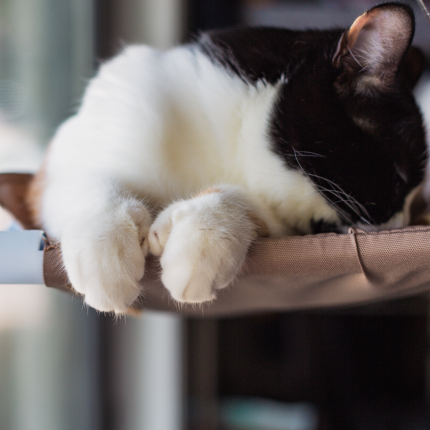Why the Ancient Egyptians Worshiped Cats
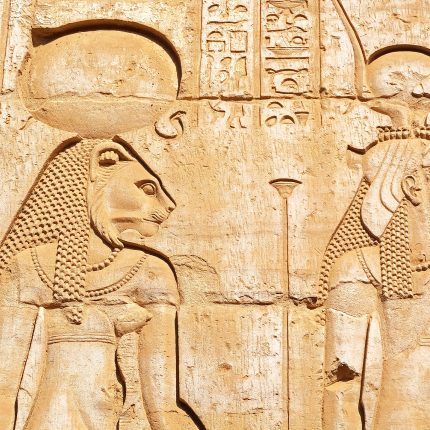
The people in Ancient Egypt held cats in such high regard, along with other animals, but the cat was favored the most. Cats had a special place in just about every home in Egypt, and they were loved beyond measure. Egyptians might have been considered extreme with their love for cats; they would even put the safety of their cat above their own.
You might be wondering what fueled this deep love Egyptians had for cats. Well, there are several reasons why Egyptians worshipped cats. One reason was that they saw cats as great protectors, and the other was that they saw them as divine beings. As a result, cats became sacred and were deeply ingrained in their belief systems.
Let’s explore a few reasons why cats were worshipped in ancient Egypt.
advertisement
Why cats were worshipped in Egypt
- They protected food supplies. During a time in history when food was not as abundant as today, pests were a serious concern. Cats played an essential role in keeping food stores safe from snakes, rats, and mice. Cats were welcomed into homes and held in high regard for helping to secure food supplies. This relationship between the Egyptians and their feline friends was beneficial to both. The cats got a lovely cozy home with an abundance of food, and people living in the house got free pest control.
- They were considered good luck. For example, Egyptians believed you had a cat appear while you were dreaming, you would soon receive good fortune.
- Companions in the afterlife. It was thought that if you had a cat while you were alive, your cat would go onto the afterlife with you and be your companion there. In fact, there have been many mummified cats recovered in Egypt.
- Pets to the royals. Much like today, people look to the royal family for trends. In ancient Egypt, Pharaohs kept cats adorned with gold and jewels. Lower-class citizens didn’t have the means to use gold and jewels for their cats, but they did create their own jewelry that featured cats.
Cat-like Egyptian God and Goddess
Ancient Egypt had its share of cat deities, which is why cats were held in such high regard.
Mafdet
Mafdet was the very first Egyptian goddess that had cat features with the head of a cheetah. Mafdet was a goddess of protection and was portrayed as a fierce goddess. She would protect the home from scorpions and venomous snakes.
Bastet
Bastet is the more famous Egyptian goddess. She was initially believed to be a goddess of protection and looked over the entire Kingdom to protect it from invaders. Over time her role changed, and she took on the part of the goddess of fertility, family, and love.
Bes
Bes was known as the protector of children. Unlike other cats, gods, and goddesses, Bes did not have their temple like other gods and goddesses in Egypt. Instead, he was thought to wander around from home to home, protecting the children in those homes.
Sekhmet
Sekhmet was a warrior goddess who helped to keep enemies at bay from the Kingdom. She was also regarded as a goddess who warded off illness.
advertisement
Interesting facts about cats in Ancient Egypt
- In wealthy Egyptian families, it was customary to mummify the cats that died and place them in the family’s temple.
- Killing a cat, even by accident, was a severe crime, and the offender would be sentenced to death. However, cat sacrifices were an exception, and the cat would then be mummified and buried with its owner.
- The Egyptian word for cat was “mieu” or “miu.”
- Cats were associated with divinity in Egyptians and were thought to see inside the human soul.
- An ancient cat cemetery was discovered in Egypt, and over 180 000 mummified cats were excavated.
- When a family cat died, it was seen as a tragedy, and the family members would go into deep mourning. First, the men that lived in the house would shave their eyebrows as a symbol of their pain. Then, they would mourn for the family cat for as long as it took for their eyebrows to grow back.
- Egyptian women would try to replicate a cat’s eye with their makeup.
- Archaeological finds point toward the cat being domesticated in Egypt.
- DNA shows that many domestic cats nowadays descend from the Egyptian wildcat.
- Exporting a cat out of the country was banned in Ancient Egypt, and if the Pharaohs learned of a cat being taken out of the country, they would send soldiers to retrieve the feline.
- Egyptians were so protective of their cats that the cat’s safety came first. For instance, if a house caught on fire and a cat were inside, the cat would be saved before people.
- When a woman was giving birth, or a man was harvesting his crops for the season, wearing an amulet with a cat was common practice to bring good luck to them and those around them.
- In 390 CE, the Roman Empire banned cat worshipping in Egypt.
Conclusion
Egyptians had many reasons for their deep love of cats. From protecting their food storage from pests to being considered divine beings, and even some of their gods and goddess taking the form of a cat. Next time you cross paths with a feline, give it a snuggle fit for royalty. You can be sure today’s cats still regard themselves as gods and goddesses.

Featured Articles
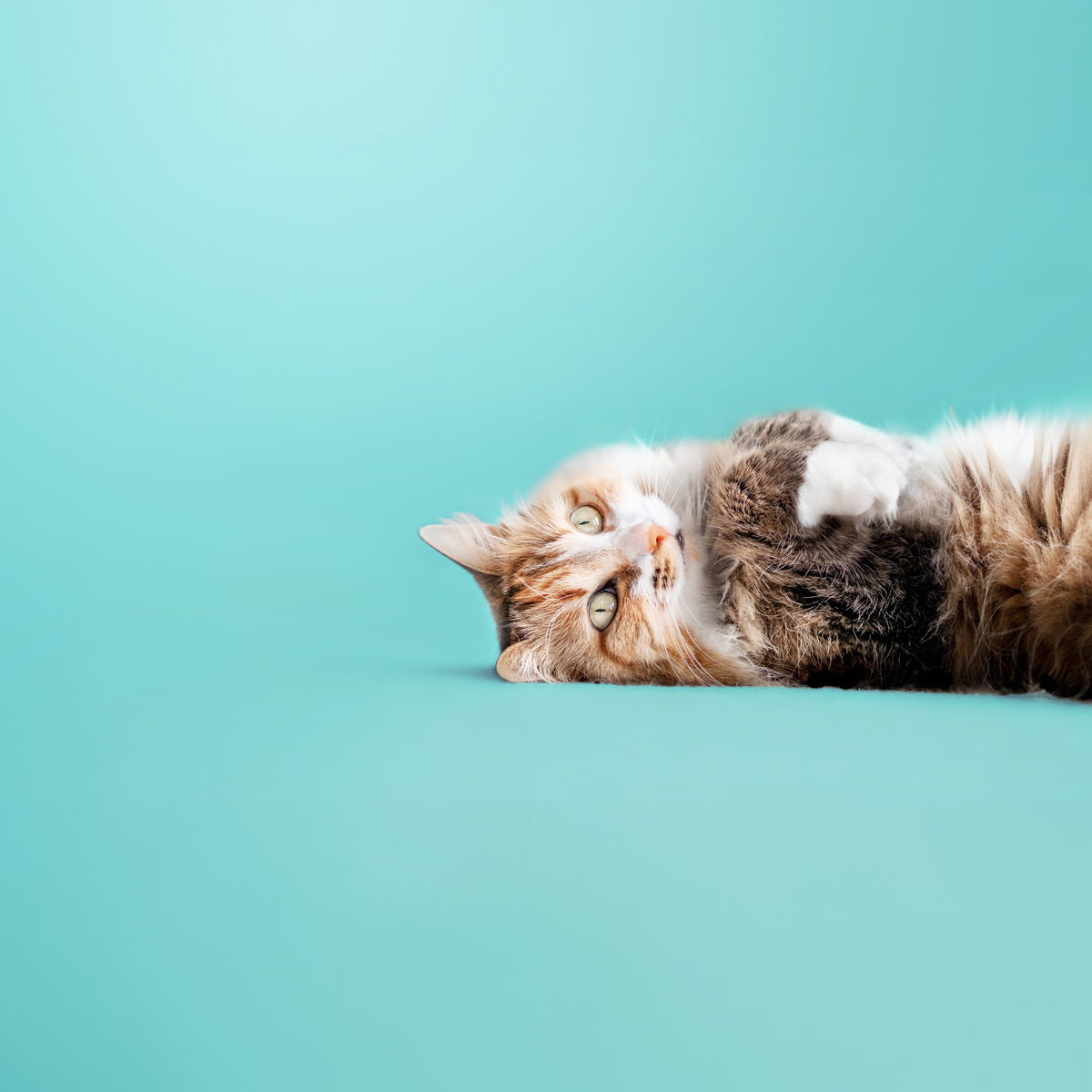
Why Do Cats Roll Over Into Their Backs But Not Let You Touch Their Bellies?
It’s common knowledge dogs love to have their tummies rubbed when they freely lay down before you and roll onto their backs. But, if you’re also familiar with cats, you know that when they roll onto their backs with their bellies exposed, rubbing the belly will most likely result in…
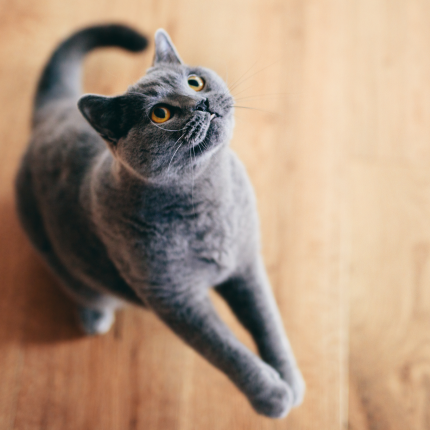
Greebles and Cats: The Origin and the Meaning
You may have seen an internet sensation concerning cats labeled “greebles.” Feel out of the loop? We’re here to help you. In 2019, Reddit user /user/literallyatree commented on a Reddit post about a cat that looks like it’s trying to slap a ghost. This user commented: “My family calls things…
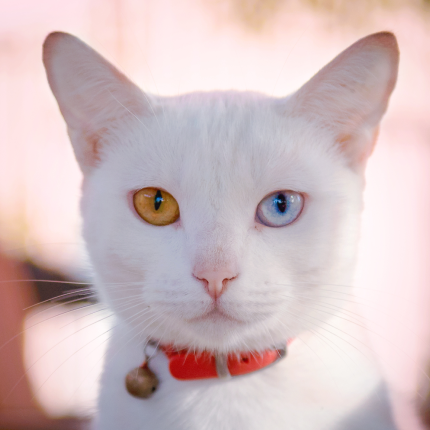
The Odd-Eyed Cat (AKA Heterochromia)
Cats are already beautiful and fascinating creatures, but people are bound to take notice when they have something as captivating as two different colored eyes. Odd-eyed cats always have one blue eye paired with either a green, yellow, or brown eye. This form of heterochromia occurs in other animals, including…
